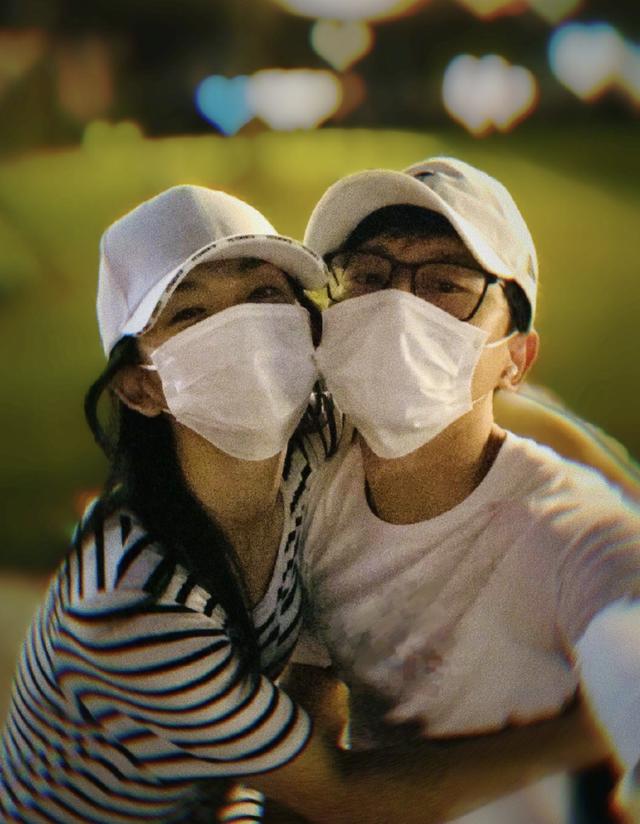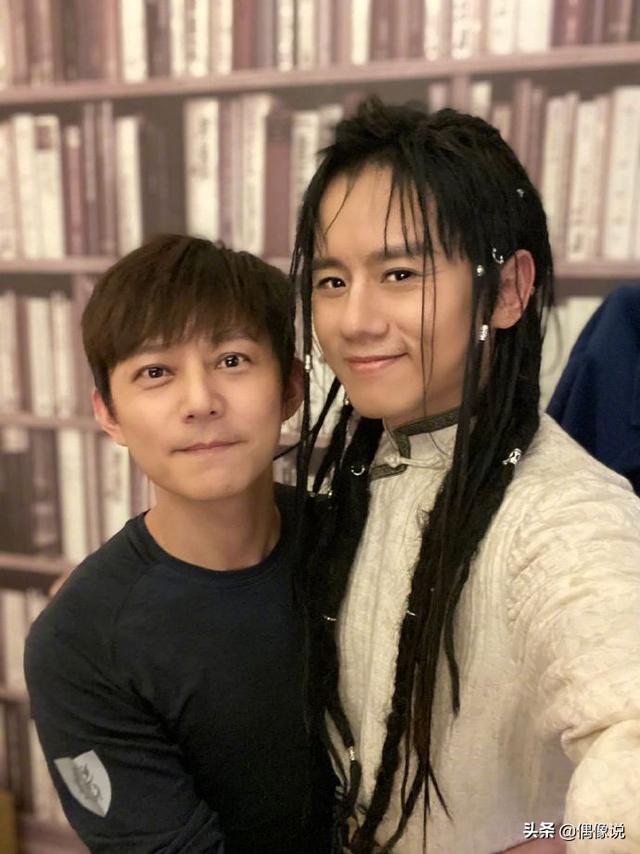英语过去进行时详解(英语语法过去进行时)
#创作挑战赛#

过去进行时vs 一般过去时Past Continuous vs Past Simple
● We use the Past Continuous to say we were in the middle of doing something at a particular moment in the past.
● 表示过去某一时间正在进行的动作,用过去进行时。
★ While I was studying in one room of our apartment, my roommate was having a party in the other room.
★ 当我在公寓的一个房间里学习时,我的室友正在另一个房间里开派对。
★ She was cooking when I telephoned her.
★ 我给她打电话的时候,她正在做饭。
★ What were you thinking about?
你在想什么呢?
I was thinking about all the things I need to do today.
我在想我今天要做的所有事情。
● To talk about a temporary situation that existed at a particular time in the past, we use the Past Continuous.
● 谈论在过去某一特定的时间存在的某种情况是暂时的,用过去进行时。
★ My head was aching again, so I went home.
★ 我的头又痛了,所以我回家了。
★ At the time of the robbery, they were staying with my parents.
★ 抢劫发生时,他们正和我的父母待在一块。
● When we talk about a permanent or long-term situation that existed in the past, we use the Past Simple rather than the Past Continuous. However, if the situation was temporary, we can also use the Past Continuous.
● 当谈论过去永久或长期存在的某种情况,用一般过去时而不用过去进行时。但若这种情况是暂时的,也可以用过去进行时。
★ When I was a child, I always played the violin. (not…I was playing…)
★ 小时候,我经常拉小提琴。
★ He worked hard all his life. (not…he was working…)
★ 他一生都在努力工作。
★ I was working in a car factory during the summer of 1985. (or…I worked…)
★ 1985年夏天,我在一家汽车厂工作。
● We often use the Past Simple rather than the Past Continuous when we are talking about repeated actions or events in the past.
● 表示过去重复发生的动作或事件,通常用一般过去时,而非过去进行时。
★ We visited Spain three times last year.
★ 去年,我们去了三趟西班牙。
★ I went past her house every day when I was a child.
★ 孩提时,我每天都会从她家门前经过。
● When we want to emphasize that something was done repeatedly in the past, we can use the Past Continuous with frequency words like always, constantly, continually, forever. Often, we do this when we want to show a feeling of dissatisfaction or complaints.
● 过去进行时同频率副词,如always, constantly, continually, forever连用时,强调某事经常发生,通常用来表示不满或抱怨情绪。
★ They were constantly having parties until the early hours of the morning.
★ 他们经常开派对直到凌晨。
★ The enemy were continually making trouble.
★ 敌军在不断地制造麻烦。
★ My wife was forever criticizing me.
★ 我的妻子总是批评我。
● We use the Past Simple to talk about a completed past event and the Past Continuous to describe the situation that existed at the time. The completed event might have interrupted the situation, or just occurred while the situation or event was in progress. We can join the two ideas with when, while or as.
● 谈论在过去已经完成的事件,用一般过去时;描述过去存在的某种状态,用过去进行时。已完成的这件事情可能中断了过去存在的某种状态或发生在某种状态存在的过程中,可用when, while或as来连接。
★ She was shaking with anger as she left the hotel.
★ 她离开酒店时,气得浑身发抖。
★ When he realized I was looking at him, he turned away.
★ 当他意识到我在看他时,他转过身去。
★ While I was walking down the street, it began to rain.
★ 我正在街上走着,天开始下雨了。
● When we talk about two or more past events that went on over the same period, we can often use the Past Continuous. However, we can use the Past Simple to express a similar meaning.
● 当表示过去的两件或多件事件在同一时期同时发生,通常使用过去进行时,但是,使用一般过去时,也可表达相同的意思。
★ Andy was reading to the children while Cathy was washing up.
★ 安迪在给孩子们读书的时候,凯西在洗碗。
★ Andy was working in a restaurant when I was living in London. =
Andy worked in a restaurant when I lived in London.
我住在伦敦时,安迪在一家餐馆工作。
● When we talk about two or more past completed events that follow each other, we use the Past Simple.
● 当表示过去接连发生的两件或多件已经完成的事件,用一般过去时。
★ He got up when the alarm clock went off.
★ 闹钟一响,他就起来了。
★ He jumped out of bed and ran downstairs to see who was knocking the door.
★ 他跳下床,跑下楼去看是谁在敲门。
● We often use the Past Continuous to describe the background situation and the Past Simple to describe the main events in stories.
● 讲述故事时,常用过去进行时来描述故事发生的背景,一般过去时来描述主要事件。
★ The wind was howling around the hotel and the rain was pouring down. It was cold. The door opened and James Bond entered. He took off his coat, which was very wet, and ordered a drink at the bar.
★ 酒店外面大风呼啸,大雨倾盆而下,天气很冷。这时,门打开了,詹姆斯·邦德走了进来,他脱下湿透的外套,在吧台点了一杯饮料。
★ James Bond was driving through town. It was raining. The wind was blowing hard. Nobody was walking in the streets. Suddenly, Bond saw the killer in a telephone box...
★ 詹姆斯·邦德开车穿过小镇,此时正下着雨,狂风乱作,街上空无行人。突然间,邦德在一个电话亭里看到了凶手......
● We don’t normally use the Continuous Tenses with stative verbs. However, we can use the Past Continuous with some stative verbs when we want to emphasize that a situation is temporary in the past.
● 静态动词,通常不用于进行时态,但有些静态动词也可用过去进行时来强调过去的某种情况只是暂时的。
★ This house belonged to the King of Sweden.
★ 这所房子归瑞典国王所有。
★ You were being very clever yesterday.
★ 你昨天真聪明。
★ I regret that I divorced him. I was just being stupid.
★ 我后悔与他离婚了,我当时真是很愚蠢。
The spelling rules for adding -ING to make the Past Continuous are the same as for the Present Continuous.
过去进行时词尾ING的拼写规则与现在进行时词尾ING的拼写规则相同。
● We normally make the Present Continuous by adding ING to the base verb.
● 通常情况下,直接在动词原形后 ING。
☆ work – working
☆ play – playing
☆ assist – assisting
☆ be – being
● If the base verb ends in vowel consonant e, omit the E.
● 动词以元 辅 e(VCe)结尾,去掉E,再 ING。
☆ come – coming
☆ mistake - mistaking
● If the base verb ends in consonant stressed vowel consonant, double the last letter. If a verb ends in W or X, do not double the consonant.
● 当动词以辅元辅结尾且重音在最后一个音节,双写最后一个辅音字母,再 ING。如单词以W或X结尾,直接 ING。
☆ stop – stopping
☆ run – running
☆ chat – chatting
☆ rob – robbing
☆ begin – beginning
☆ regret – regretting
☆ prefer – preferring
☆ show – showing
☆ fix – fixing
Note that this exception does not apply when the last syllable of the base verb is not stressed.
注:如果重音不是在最后一个音节,则直接 ING。
☆ open – opening
☆ happen – happening
☆ offer – offering
☆ listen – listening
● If the base verb ends in IE, change the IE to Y and then add ING.
● 当动词以IE结尾,变IE为Y,再加ING。
☆ lie – lying
☆ die – dying
☆ tie – tying
If you found this article useful, please like and share it. Thanks a million.
如若觉得这篇文章有所帮助,麻烦亲爱的亲亲们帮忙点赞和分享!!! 万分感谢!!!
,免责声明:本文仅代表文章作者的个人观点,与本站无关。其原创性、真实性以及文中陈述文字和内容未经本站证实,对本文以及其中全部或者部分内容文字的真实性、完整性和原创性本站不作任何保证或承诺,请读者仅作参考,并自行核实相关内容。文章投诉邮箱:anhduc.ph@yahoo.com






